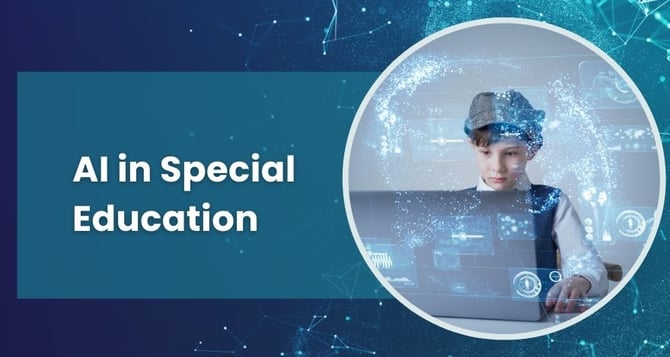AI in Special Education: Supporting Diverse Learning Needs
Discover the power of AI in special education through Node.js. Learn to build a text-to-speech app providing personalized support for diverse learning needs. Embrace ethical practices and collaboration for inclusive education.

Special education is a field dedicated to providing tailored learning experiences for individuals with diverse learning needs. With advancements in artificial intelligence (AI), educators and researchers are leveraging AI to create more inclusive and effective learning environments. In this article, we'll explore the role of AI in special education and its potential benefits and delve into detailed technical implementations using Node.js.
The Importance of Special Education
Special education is a vital component of the education system that addresses the unique learning requirements of students with disabilities or special needs. These needs can range from physical disabilities and learning disorders to autism and speech impairments. AI has the potential to revolutionize special education by offering personalized support and resources to students, educators, and parents.
Building AI-Powered Tools for Special Education with Node.js
Let's delve into the technical aspects of creating AI-powered tools for special education using Node.js. In this example, we'll focus on building a text-to-speech (TTS) application that assists students with reading difficulties.
Node.js Implementation
1. Set Up Your Development Environment
Start by setting up your Node.js development environment and installing the required packages.
2. Create an Express Server
Set up an Express.js server to handle incoming text and generate speech using IBM Watson Text to Speech.
3. Create the Frontend
Develop a user-friendly frontend for your TTS application using HTML, CSS, and JavaScript. The frontend should allow users to input text and receive speech output.
4. Configure IBM Watson Text-to-Speech
To run the app, you need an IBM Watson Text-to-Speech service instance. Replace `'YOUR_WATSON_TTS_USERNAME'` and `'YOUR_WATSON_TTS_PASSWORD'` in the Express server code with your actual credentials.
5. Run Your App
Run your Node.js server using the following command:
Your TTS application should now be accessible at `http://localhost:3000` or the specified port.
Empowering Special Education with AI
In this example, our TTS application helps students with reading difficulties by converting text to speech, making written content accessible through audio. AI-powered tools like this can cater to various learning needs, including visual impairments, dyslexia, and language processing disorders.
Empower Your Business with AI Innovation
Get custom solutions, recommendations, estimates, confidentiality, and same-day response guaranteed!
Considerations and Best Practices
1. Accessibility: Ensure that AI-powered tools are accessible to students with diverse needs, including those using screen readers and other assistive technologies.
2. User Feedback: Gather feedback from students, educators, and parents to continuously improve AI-powered tools and address specific learning challenges.
3. Data Privacy: Handle student data with utmost care, following data privacy regulations and ensuring secure storage and transmission.
4. Collaboration: Collaborate with educators and special education experts to tailor AI solutions to the unique needs of students.
5. Ethical Use: Ensure that AI systems are used ethically and responsibly, avoiding biases and promoting inclusivity.
Conclusion
AI-driven technologies, including Generative AI development services, are revolutionizing special education. Signity Solutions empowers educators with innovative tools, combining Node.js and AI services like text-to-speech, ensuring personalized support for students with diverse learning needs. As technology advances, our expertise enhances the role of AI in special education, benefiting students, educators, and parents alike.


%201-1.webp)


.png?width=344&height=101&name=Mask%20group%20(5).png)








.png?width=352&name=AI-Enhanced%20VR%20(1).png)







